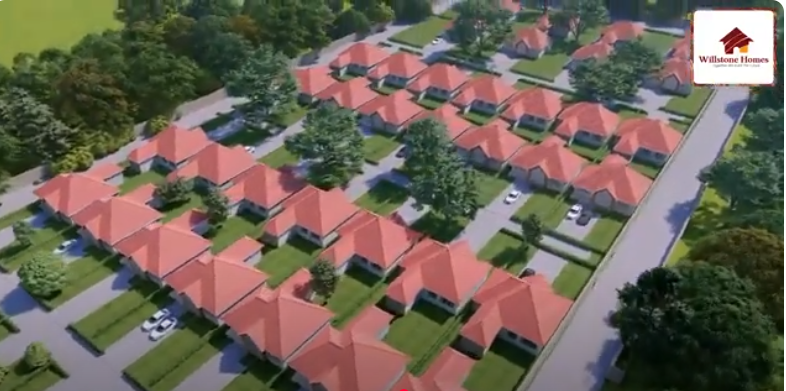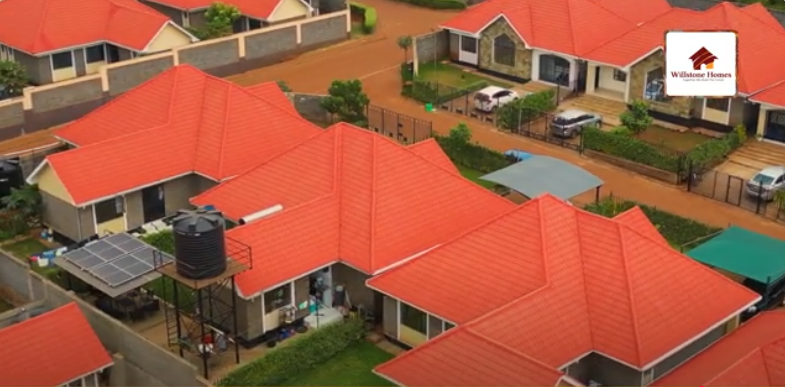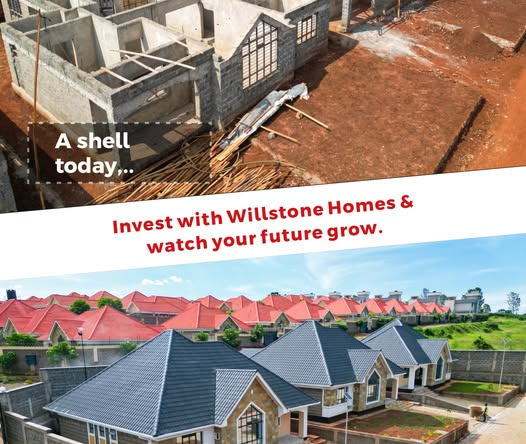The New Face of Real Estate in Kenya
When people talk about real estate trends in Kenya, the conversation often sounds like an investor’s PowerPoint deck — filled with percentages, graphs, and market jargon. But beneath the statistics, there’s a more personal revolution taking shape. Across Nairobi and beyond, Kenyans are quietly redefining what “home” really means — not just as an asset, but as a space that reflects safety, community, and identity.
As affordability, sustainability, and technology reshape the property market, the country’s urban middle class and diaspora buyers are asking more thoughtful questions:
Is this home sustainable? Does it support my family’s lifestyle? Can I manage it digitally from abroad?
Contact Us
- Park Suites, 44 Parklands Road, Ground Floor, Suite 1, Willstone Homes
- +254711082011
- [email protected]
These questions reveal the emotional and social shift driving Kenya’s real estate transformation.
Sustainability Is the New Value
From luxury feature to lifestyle necessity
A decade ago, solar panels and rainwater harvesting systems were the hallmarks of luxury estates. Today, they are mainstream demands. Rising electricity costs, unpredictable weather, and water shortages have made sustainability less about prestige and more about practicality.
Homebuyers now look for eco-conscious designs — natural lighting, energy-efficient appliances, and green open spaces. Developments in Nairobi’s outskirts like Kitengela, Athi River, and Limuru are adopting solar-ready rooftops and bio-waste management systems to meet this demand.
Sustainability is no longer just environmental virtue; it’s financial resilience. A home that works with nature saves money — and offers peace of mind in a changing climate.
Read Also:: Green bonds Kenya — Why Developers Should Care Now
Our vision is to deliver affordable, high-quality living solutions for Kenyans, both locally and abroad. Over the years, we’ve developed housing options across Nairobi and surrounding areas, and we’re excited to now offer fully serviced plots for property ownership.
Master-Planned Gated Communities Redefine Belonging

Safety meets social connection
Kenyans are increasingly drawn to gated communities not only for security, but for community life. In neighborhoods such as Karen, Kiambu, and Syokimau, estates are being designed with built-in schools, supermarkets, and recreational parks — all within walking distance.
The appeal is emotional as much as functional. In an era of uncertainty, predictability is a premium. Parents want safe outdoor spaces for their children; professionals want reliable infrastructure; retirees want peace and community.
Gated living, once a symbol of exclusivity, has become a model for structured simplicity — offering homeowners both independence and shared belonging.
Lifestyle-Driven Property Buying Is on the Rise
Homes that restore, not just shelter
Kenya’s real estate map is expanding beyond Nairobi’s commercial rush to lifestyle destinations like Vipingo Ridge, Naivasha, and Nanyuki. Buyers are no longer chasing square footage; they’re chasing serenity.
The lifestyle properties Kenya trend is driven by remote work flexibility, better road networks, and wellness-conscious living. A growing number of professionals are purchasing homes that double as weekend retreats or future retirement residences.
For these buyers, real estate is not just a financial investment — it’s a lifestyle statement. The home becomes a space for restoration, creativity, and freedom.
The Mid-Market Buyer Is Driving Growth
Value over vanity
The sweet spot in Kenya’s housing demand lies in the mid-market segment — buyers earning between KSh 100,000 and KSh 300,000 per month. These buyers want homes that balance affordability with durability.
They are wary of poorly built low-cost projects and overpriced luxury units. Instead, they seek quality construction, flexible payment plans, and long-term resale value.
Developers who respond with practical, well-engineered homes are winning this segment. The rise of affordable homes in Nairobi that don’t compromise on structural integrity or aesthetics signals a maturing market — one where quality, not gimmicks, earns trust.
Technology Is Changing How Kenyans Buy Homes

Digital convenience is now the new front door
The digital transformation of Kenya’s property market is accelerating. From 360° virtual tours to WhatsApp-based sales agents, digital property buying in Kenya has become the norm rather than the exception.
Younger homebuyers, especially those in the diaspora, want instant access to property details, transparent pricing, and remote transaction options. Developers integrating secure online payment systems, AI-powered listings, and blockchain-based title verification are setting new industry benchmarks.
The modern buyer expects to view, compare, and reserve properties without stepping into a physical office — a shift that’s redefining real estate marketing altogether.
Read Also: Fencing the Future: Why Kenyan Homeowners Are Redefining Security Aesthetics
What These Trends Reveal About Kenyan Society
| Trend | Key Features | Main Buyer Group | Impact on the Market |
|---|---|---|---|
| Sustainable Living | Solar panels, rainwater harvesting, energy-efficient design | Middle- and upper-middle-income buyers | Reduces utility costs; boosts demand for eco-certified projects |
| Gated Communities | Master-planned estates with amenities (schools, shops, parks) | Families and urban professionals | Increases safety, sense of belonging, and community structure |
| Lifestyle-Driven Homes | Homes in scenic, quiet areas like Vipingo, Naivasha, Nanyuki | Diaspora, retirees, remote workers | Shifts demand to lifestyle destinations beyond Nairobi |
| Mid-Market Value Segment | Affordable yet durable homes with flexible payment plans | Salaried middle class | Drives most housing transactions; stabilizes demand curve |
| Digital Property Buying | Virtual tours, online payment, WhatsApp sales | Young and diaspora buyers | Expands access, increases transparency, and speeds up decision-making |
Each of these shifts — sustainability, community living, lifestyle alignment, mid-market value, and digital access — points to a deeper evolution in Kenyan society.
Today’s homebuyers are not just purchasing walls and roofs; they’re buying meaning. Their choices reflect a collective yearning for balance: between modern convenience and natural living, between individuality and community, between aspiration and authenticity.
Real estate developers who listen — and design around these human needs — are the ones who will shape Kenya’s urban future.
Final Thought: Homes as Reflections of Who We Are
The real estate trends in Kenya tell a bigger story than market cycles. They speak of a nation becoming more intentional about how it lives and what it values.
As Nairobi continues to grow vertically and outwardly, the most successful projects will not be those with the tallest towers or flashiest finishes. They will be those that understand the people behind the property — their hopes, habits, and need for meaning in the spaces they call home.
Because in the end, real estate isn’t just about where we live — it’s about how we choose to live.





